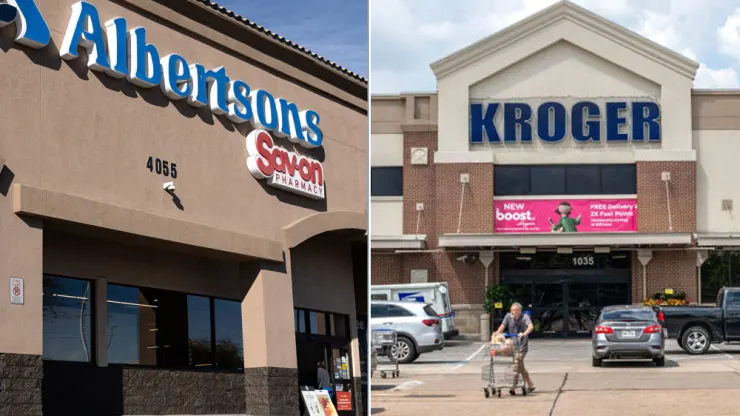The U.S. Federal Trade Commission (FTC) announced on Monday its intention to file a lawsuit aimed at preventing the merger of Kroger and Albertsons. The FTC argued that the combination of these two major grocers would likely lead to increased prices for consumers and decreased wages for workers.
According to the FTC, the proposed $24.6 billion acquisition of Albertsons by Kroger would result in the formation of one of the largest grocers in the country. Joining forces with a bipartisan group of nine attorneys general from various states, including Arizona, California, and Illinois, the FTC aims to challenge this merger in federal court.
The FTC’s Bureau of Competition Director, Henry Liu, voiced concerns about the potential consequences of the merger, stating that it could lead to higher grocery prices and adverse effects on essential grocery store workers. He emphasized the importance of protecting consumers and workers from such outcomes.
Both Kroger and Albertsons responded to the FTC’s actions with statements expressing disappointment and disagreement. Kroger argued that blocking the merger would negatively impact consumers and workers, leading to higher food prices and reduced access to grocery stores, especially amid existing challenges like high inflation and food deserts. Albertsons criticized the FTC’s perspective as outdated, highlighting the growing dominance of larger retailers like Walmart and Amazon.
The proposed merger between Kroger and Albertsons has been under scrutiny for over a year as federal and state regulators assess its potential impacts. While Kroger CEO Rodney McMullen has advocated for the merger, citing benefits such as lower prices and increased profitability, the deal has faced opposition from unions representing Kroger and Albertsons employees, as well as concerns from politicians and consumers regarding potential pricing power and worker negotiations.
Despite Kroger’s efforts to address antitrust concerns by planning to sell hundreds of stores to Piggly Wiggly owner C&S Wholesale Grocers, the FTC remains unconvinced, arguing that such divestitures would not adequately address competition issues.
In addition to potential consumer price increases, the FTC expressed concerns about the merger’s impact on the quality of customer experiences and workers’ bargaining power. The agency warned that a combined Kroger and Albertsons entity could diminish competition, leading to fewer incentives for innovation and potentially worsened working conditions for employees.
As news of the impending lawsuit emerged, Kroger reiterated its commitment to benefiting consumers and workers, emphasizing its efforts to lower prices, create jobs, and improve access to fresh food. Despite fluctuations in stock prices for both Kroger and Albertsons following the announcement, the outcome of the lawsuit remains uncertain as discussions between the companies and regulatory authorities continue.

